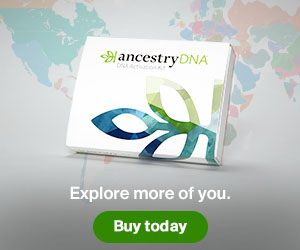Teaming up with others is one of the most valued aspects of genealogy. While it’s totally possible to make fantastic progress conducting your household history research study completely on your own, working and showing similar folks can be both useful and a whole lot of fun.
Today there are lots of choices for partnering with others to speak about genealogy, compare brick walls, and share successes. Social network groups, e-mail lists, message boards, and genealogical societies are all excellent choices. If you’re looking for less structured, face-to-face interaction with local genealogists, you may consider signing up with or beginning a local genealogy club.

What’s a genealogy club?
Honestly, a genealogy club can be anything you want it to be however, typically, it’s merely a group of people who get together personally to discuss and work on their individual genealogical research. Unlike a lot of developed genealogical and historic societies, clubs are really casual, totally free to join, and don’t produce publications.
Sizes of clubs differ, because most meetings are open to public to allow anybody to attend at their benefit; often registration isn’t even required. Levels of knowledge likewise differ; beginning genealogists might attend a conference just to learn from others how to begin, while advanced historians might take advantage of bouncing concepts or theories off of an audience.
Should you begin a brand name brand-new genealogy club?
Before you release your own local genealogy club, you may want to make sure there’s not another one already around in your location. Obviously, individuals may wish to take part in several clubs, particularly in larger neighborhoods or in cases where you can angle your club towards a particular sub topic, however finding an existing club to sign up with might keep you from replicating efforts.
To see what’s out there in your area, Google “genealogy clubs near me” or check out Cyndi’s List, where numerous companies are noted alphabetically (regrettably not geographically).
Meetup.com is a great place to find groups near your place. If you don’t find any groups you ‘d like to join, or that use what you think your community’s genealogists require, keep reading to learn how to begin your own!
Screenshot of Genealogy Meetup Groups
The 5 W’s of getting your club off the ground
As the soon-to-be-leader of your brand-new club, you’ll first wish to develop your club’s five W’s– who, what, when, where, and why– before you start advertising and recruiting.
WHO will you welcome into your genealogy club? Many groups are open to anybody and everybody, but you might have specific objectives in mind, like beginning a club for kids and teenagers, or possibly for elders, or perhaps you desire to focus on a specific subject, like African-American research.
WHAT do you wish to your club to be? A reasonably static group that fulfills weekly with an official program and refreshments, or a monthly chance for a free-flowing, open-attendance workshop? You might have an unclear concept of what you ‘d most delight in or what you think would appeal to folks in your location. Just remember that it’s a club, not a chartered organization, so you can change things up if and when you ‘d like.
WHEN do you want to meet, and for how long? This will depend mainly on your schedule along with the other W’s (where you’re fulfilling, what you’re doing, who’s invited), however monthly is normally a great frequency to start with.
WHERE will you get together? The majority of genealogy clubs appear to be sponsored by libraries, and therefore convene in a library’s community room or regional history section. There are absolutely advantages to being simply arm’s- length far from your library’s resources like books, microfilm, and access to online genealogical subscriptions. Coffee shops, churches, community centers, archives, and dining establishments are also terrific options.
HOW will your club function, and what do you want your role to be? Advertising a speaker could assist to drum up interest in your group, however enables your club members less time to work on other projects or speak among themselves.
You will also wish to think about whether you wish to offer some educational products for your club– such as a newbie genealogy how-to guide, a list of popular online resources or step-by-step products on different topics. Family History Daily provides a lot of these resources on our site and you can constantly email the editor to request to utilize them in your club totally free. You might also consider acquiring an online genealogy course to educate yourself on various topics and have something to referral when a concern comes up.
Time to promote!
Now that you have at least a tentative prepare for your genealogy club, it’s time to get the word out. Your club will require a name, however it can be as easy as “Smith County Genealogy Club” or “Jonesville Library Genealogy Club.” When you’ve chosen a proper moniker, attempt one or all of these options to evaluate interest and/or promote your inaugural meeting:
Facebook: Chances are you’re already taking part in Facebook groups or following pages that concentrate on genealogy or local history. Produce and share a post or an occasion about your group in both your individual page as well as within appropriate groups and pages. You may likewise wish to begin a group on Facebook for your club to assist individuals find you and connect in-between conferences.
Twitter and Instagram: Never ignore the power of a hashtag! Including hashtags like #genealogy, #familyhistory, or #genealogyclub will assist people who have an interest in these subjects discover your posts.
Print: An old-fashioned leaflet pinned to a community center or library bulletin board is a reliable method to capture the attention of particular audiences, as is a complimentary community occasion announcement in your regional paper.
Meetup: This online service is “used to arrange online groups that host in-person occasions for individuals with similar interests,” including genealogy clubs. Meetups are sorted by interest and location, and establishing a meetup is easy and totally free. Simply visit their website to get started.
Word-of-mouth: Another oldie-but-goodie! Share your new club with your good friends, household, next-door neighbors, and key individuals within your neighborhood like your regional history librarian, archive staff, and members of the genealogical societies. Inquire to spread the word for you.
Your announcement must share your 5 W’s as well as anything your potential participants will need to bring with them, like laptop computers, family charts, old images, or other files. Let them know if food will be served, if wifi is offered, and any other information you ‘d like to know if you were reading your notice.
Your very first meeting
Depending on your group’s objectives and where you fulfill, you might some prep work to finish prior to your very first meeting. If you have a speaker, will they need wifi or a screen for a presentation?
Welcome your guests, repeat your goals and how the conferences will work, and get going! Remember to close your meeting by reminding everybody about your next conference time. Your club might effectively evolve as you continue to fulfill and grow, but at first you’ll need to set the phase and develop a repeatable structure.

Leave a Reply